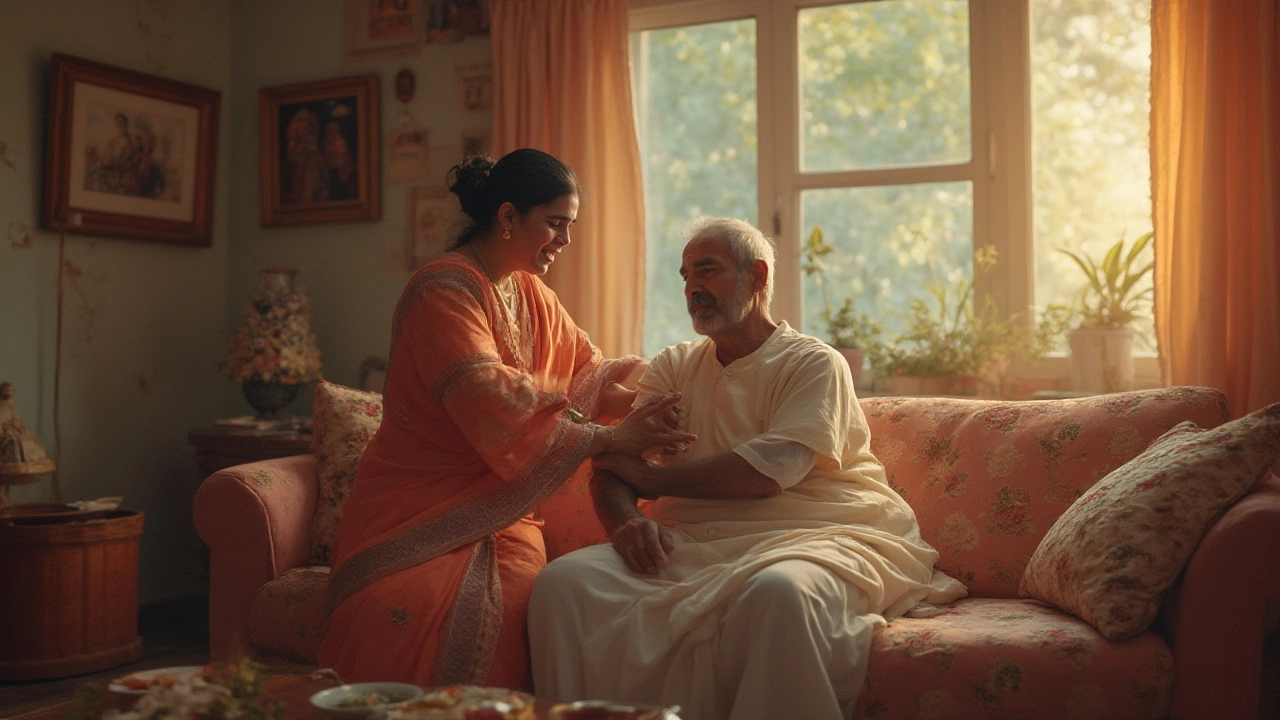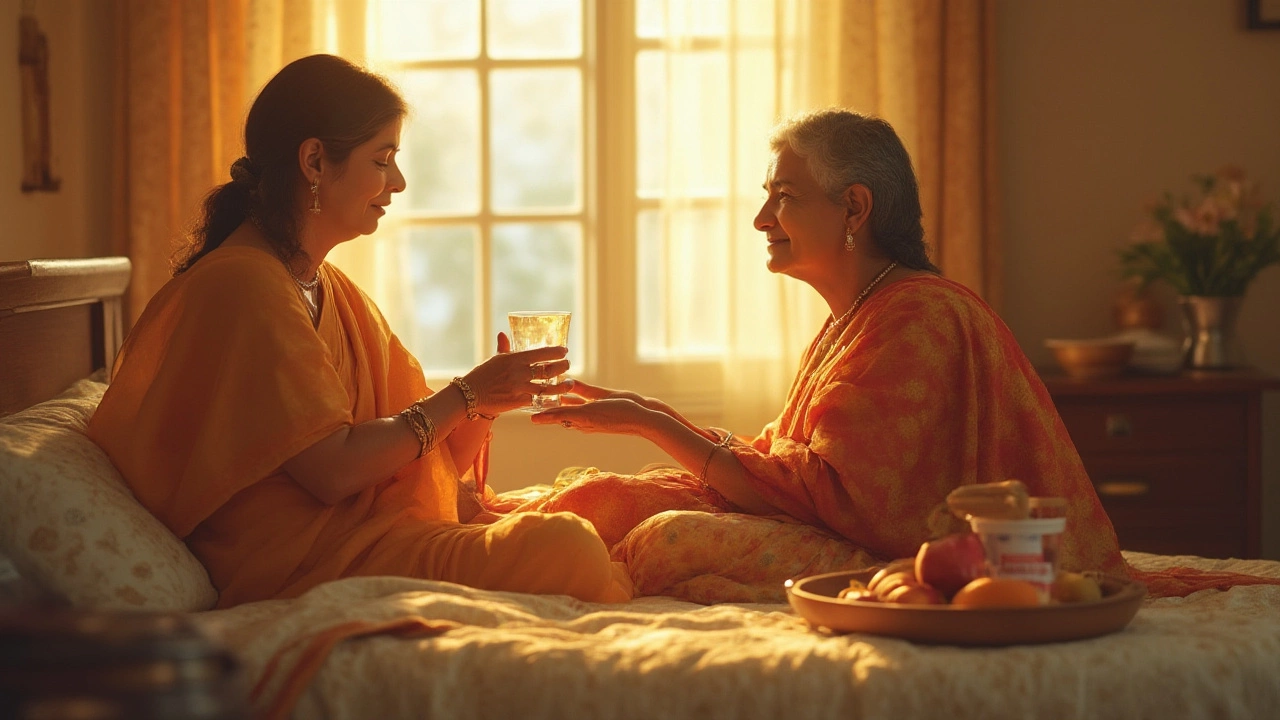Try going from hospital lights and endless beeping to the awkward quiet of your own bedroom, as your husband comes home fresh from open-heart surgery. Maybe you thought you were ready, but the script rarely sticks to plan. He might look fragile. You catch yourself inspecting the stitches every morning, half expecting magic, half dreading setback. Let’s admit it—watching someone you love recover from heart surgery is a wild roller coaster, even in a city like Bangalore where excellent cardiologists hide behind every corner. Nobody teaches you what to say when your partner winces or wants to walk farther than the doctor said. You tiptoe between cheerleader, nurse, and your husband’s old best friend. This ride involves some ugly tears, some random fights, and more patience than you ever guessed you had.
Understanding Physical Healing and Recovery
Recovery after heart surgery is nothing like the movies. There’s no neat, one-week timeline. Most doctors in India agree that full recovery can take anywhere from six weeks to three months, depending on the type of surgery—CABG (bypass), valve replacement, stents, or pacemakers all come with their unique quirks. Your husband may battle exhaustion after a short walk to the kitchen. Even cooking dal can feel like climbing Nandi Hills on a hot day. Don’t fall for the myth that once he looks better on the outside, he’s completely healed inside.
Sticking to medical advice is everything right now. Sounds obvious, but it’s more than just popping pills. Medication schedules can balloon to six, even nine separate drugs: blood thinners, beta-blockers, cholesterol meds—the list goes on. Use alarms, post sticky notes, or write a chart together. Missing just one tablet by accident can spike risk. According to a 2024 meta-analysis out of AIIMS and NIMHANS, nearly 20% of Indian cardiac surgery patients end up back in the hospital within the first month due to issues like skipped meds or infections.
Wound care is a daily drama, especially in the sticky Bangalore monsoon. The surgical scar, usually down the middle of his chest, must stay clean and dry. Most heart surgeons now use skin glue, but redness, swelling, or fluid leakage mean a fast trip back to the hospital. Remind him not to scratch, no matter how much it itches. Showers are fine, but no soaking in a tub or swimming for at least a month.
Diet changes are non-negotiable—even if he begs for samosa. Low salt, low oil, lots of fruits, veggies, pulses, and whole grains. The American Heart Association and many Bengaluru hospitals now recommend the “DASH” diet, which cuts sodium and adds potassium-rich foods like bananas and papayas. But there’s a balance—don’t police every bite. A cheat meal sometimes beats a week of resentment.
Then there’s cardiac rehab, which most Indian couples skip out of shyness or confusion. These programs (offered by several private hospitals in Bangalore) are proven to cut risk of more heart attacks by over 25% and boost mood, too. If you can arrange it, join him for one or two sessions. Watching other couples stumble through those awkward exercises brings a weird comfort.
Here are some precise things you’ll want to track at home:
- Daily walk time and distance – aim for gradual increases, not sprints.
- Blood pressure – buy an automatic monitor, and keep notes or a digital log.
- Weight – swelling/edema can be an early warning sign.
- Pain level – zero means he’s hiding something; ten means you call the doc.
- Appetite and sleep – both are clues to deeper problems like depression or medication side effects.
| Week | Milestones | Notes |
|---|---|---|
| 1-2 | Showering, sitting up, short indoor walks | Monitor wound, avoid visitors with cough/cold |
| 3-4 | Longer walks, stair climbing, some chores | Start low-sodium meals, monitor mood |
| 5-6 | Back to light work, emotional swings | Cardiac rehab starts if possible |
| 7-12 | Back to routine, sexual activity okay if pain-free | Stay in touch with doctor for routine check |
Sex and intimacy—that topic everyone avoids. Most doctors say it’s fine to resume when walking up two flights of stairs doesn't cause pain or breathlessness. Be open, talk honestly if he’s afraid or embarrassed. Patience is sexier than pressure during recovery. And if he complains about chest discomfort or a racing heart, stop and call his doctor.

Navigating Emotional Ups and Downs
Nobody hands you a manual for the mood swings you’ll see. The stats might shock you—a 2023 survey from the Indian Heart Journal found that over 40% of Indian heart surgery patients show symptoms of depression or anxiety in the first year after surgery. Many men, especially Indian dads or husbands, keep these feelings bottled up. He might act irritated, weepy, or quiet—and he might snap for no reason at all.
This isn’t about you doing something wrong. It’s his body and brain trying to process trauma. Even if he looks okay, he might fear a second surgery, or worry if he’ll be able to work or support the family. Guilt—over burdening you, about lost income, about “not being the man he was”—is real, and often unspoken.
Here’s a toolkit many wives in Bangalore have tried, with real success:
- Don’t force pep talks. Brief check-ins (“How are you feeling today?”) work better than cheerleading marathons.
- Listen openly. Silence after a rant is sometimes all he wants.
- Watch for clues. Loss of appetite, skipping medicine, or sleeping all day could be cracks in his armor.
- Invite small wins. Celebrate a longer walk, a good lab report, or eating a healthy meal without complaining.
- Encourage him to talk to close friends, a trusted family member, or a psychologist. Many Bangalore hospitals now have visiting counselors specially trained in cardiac mental health.
- Set boundaries. It’s okay to tell him you’re drained, tired, or scared. Nobody expects perfection from you.
Remember your own wellbeing. You’re not a robot, and burnout is sneaky. Studies suggest that 25% of Indian caregivers for heart patients develop symptoms of depression within the first six months. Take time during the day for yourself, even if it’s just a walk around Jayanagar market or chai with a friend. If feelings of hopelessness creep in, ask for help. There are several online and in-person support groups: Heart Care Foundation and local Facebook groups for Bangalore caregivers have become lifelines for many spouses.
Fights will happen. Things you babbled through before—money, food choices, TV remote—can suddenly become battlegrounds. Don’t let guilt eat you alive; making up matters more than keeping a perfect record.
Don’t fall for comparison. Every recovery is different. Ignore relatives who brag that “my uncle was jogging on Day 15”—they probably skipped details. Stick with your husband’s pace. Small, steady progress beats wild ups and downs.

Daily Routines and Keeping Your Relationship Strong
This isn’t just about medicines or meals. It’s about shaping a new rhythm that feels like ‘you two’—not nurse and patient. Some days will be spectacularly boring. Others, pure chaos. But weaving in small rituals can help.
Mornings set the tone. Start with gratitude—corny, but proven in research from the Tata Institute of Social Sciences to boost mood. Before coffee, ask, “What one thing are you looking forward to today?” It might be mango season, a cricket match, or video-calling grandkids. Little moments give shape to days that otherwise blur together.
Movement matters, but so does fun. Short morning or evening walks—even around the garden—are better together. Dust off card games, old playlists, even silly races in the hallway if he’s able. Laughter triggers endorphins, nature’s own heart medicine.
Jobs around the house shouldn’t all fall on you, even in the first month. Ask him to fold clothes, chop veggies (if he can), or share small daily tasks. Studies from Narayana Health show that doing tiny jobs—measured, supervised, and never forced—actually aid faster healing by building confidence.
Don’t let food become a battlefield. Involve him in meal planning, let him choose between two healthy options, or cook together. Trying new recipes reframes “doctor’s order” as “teamwork.” If relatives come to visit with fried snacks, just smile, pack them away, or serve small portions with lots of fruit and water.
Rest is sacred. Too much napping, though, can lead to night-time insomnia. Keep TVs and phones out of the bedroom after 10 pm. Try simple breathing exercises or soothing music—South Indian classical ragas are a local favorite according to a 2022 study from Bangalore Medical College.
One problem you’ll likely face is visitors. Indian families love to drop in, but too many guests can spread germs and disturb rest. Politely ask for calls or video chats instead, at least for the first month. If push comes to shove, blame the doctor!
Routine doctor visits, lab reports, and those endless ECGs—keep a folder or digital scan of every record. Bring your own list of questions to appointments. If your husband clams up, you can step in to clarify any confusion. Many doctors appreciate a proactive spouse instead of a silent one.
Finally, plan tiny celebrations. Mark milestones—a pain-free week, the first day he drives, completing his first month post-surgery. Even candy floss from a local shop or a selfie in Lalbagh can create memories that stitch your new life together more gently.
Your role will evolve. You’ll switch from full-time watchdog to backup coach. Resist the urge to shield him from everything. Let him stumble and find new boundaries—it’s how confidence returns.
No two love stories follow the same script. Heart surgery throws new shadows and new light. You can find your own mix of science, patience, laughter, and stubborn hope. Day by day, step by step, you both get to write a comeback story worth telling.
